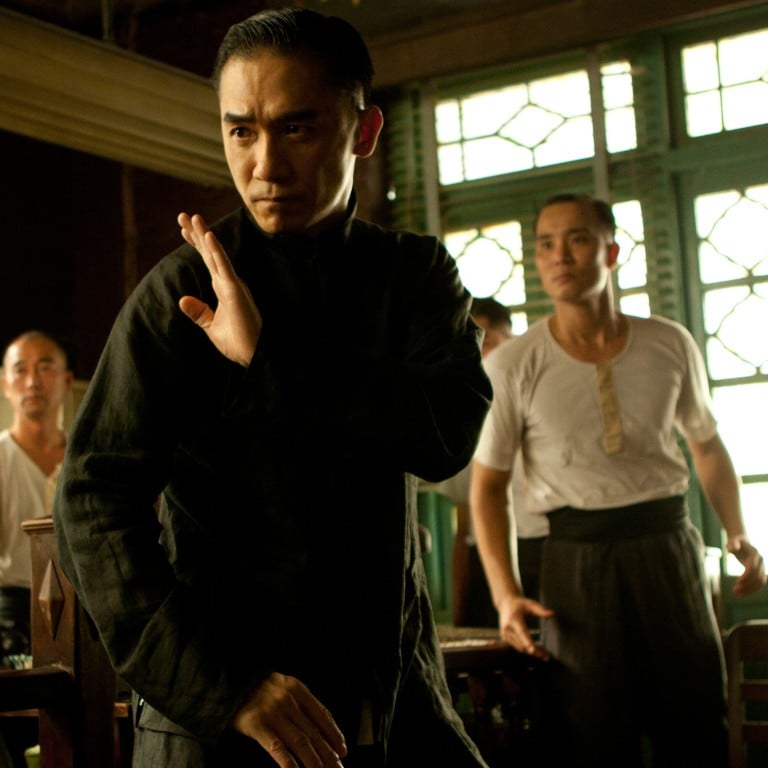
Hong Kong martial arts cinema: how Jackie Chan led revival of genre after slump Bruce Lee’s death caused
- Roger Garcia, former Hollywood producer and doyen of film festivals, picks Jackie Chan film Snake in the Eagle’s Shadow among his five top martial arts films
- There’s a Sammo Hung film in the mix too, one by ‘the greatest martial arts director’ Lau Kar-leung, and a Wong Kar-wai film
The Deaf Mute Heroine (dir. Wu Ma, 1971)
“The period piece The Deaf Mute Heroine, directed by the great Hong Kong filmmaker Wu Ma, features Helen Ma in the title role as a retired bounty hunter. When her husband is killed by a past nemesis in a revenge attack, she sets out to avenge his death.
An intriguing mix of [French filmmaker Francois] Truffaut’s The Bride Wore Black and the [Japanese] Zatoichi blind swordsman series, the film features a female protagonist who is as tough and smart as any male. Unable to hear, she uses silver wrist bands as rear-view mirrors in combat to dispatch her attackers with skilful efficiency.
Helen Ma later appeared in King Hu’s The Fate of Lee Khan (1973).”
Executioners from Shaolin (dir. Lau Kar-leung, 1977)“Lau Kar-leung is the greatest of the martial arts film directors. Steeped in the fighting traditions of southern China, he began his career with his father in the classic Wong Fei-hung series of the 1940s and 1950s.
Executioners from Shaolin features the two key themes of his oeuvre – the transmission and transformation of skills from master to disciple, and the struggles which take place between the exponents of different martial arts styles.
Hong Kong martial arts cinema: everything you need to know
Hung, an expert in Tiger kung fu, marries Ying Chun, who’s skilled in the Crane style. He tries to defeat the Manchurian-backed Pai Mei, but is defeated by his opponent’s superior combat skills.
It is left to Hung’s son Wen-Ding to combine the styles of his parents to defeat Pai Mei in one of the genre’s most climactic fight scenes.”
Snake in the Eagle’s Shadow (dir. Yuen Woo-ping, 1977)
“This early Jackie Chan movie shows how his refreshing and genuine fighting and comedy skills revived the genre after the trough of films featuring Bruce Lee lookalikes which followed the master’s death.
In Yuen Woo-ping’s directorial debut, Chan teams up with an old Snake master (played by Yuen Woo-ping’s father, another alumnus of the Wong Fei-hung series) who is being hunted by an Eagle Claw expert.
Pedicab Driver (dir. Sammo Hung, 1989)“No list can be complete without at least one Sammo Hung film. Here, Hung and his friend Max Mok play pedicab drivers in 1930s Macau who free the women they love from the control of evil bosses.
A high point is Hung fighting off a horde of goons in a Chinese restaurant full of tables – Hung, despite his size, smashes down gangsters as he pirouettes and weaves his way across the tabletops.
A full 20 years later, Hung returned to table-top kung fu in Ip Man 2 (2010), updating the scene and even improving it.”
The Grandmaster (dir. Wong Kar-wai, 2013)
“Hong Kong’s best-known auteur takes on the Ip Man story in this tale of the wing chun master’s rise to prominence and his move to Hong Kong. A fight between Tony Leung Chiu-wai and Zhang Ziyi in a tightly confined space is one of Yuen Woo-ping’s best pieces of fight choreography.
The film took years to make, in part because Wong wanted Leung to learn martial arts. It pays off, because Wong realised that martial arts is a language and you have to achieve fluency to be authentic. Leung passed the language test.”
In this regular feature series on the best of Hong Kong martial arts cinema, we examine the legacy of classic films, re-evaluate the career of its greatest stars, and revisit some of the lesser-known aspects of the beloved genre. See our martial arts film explainer.

